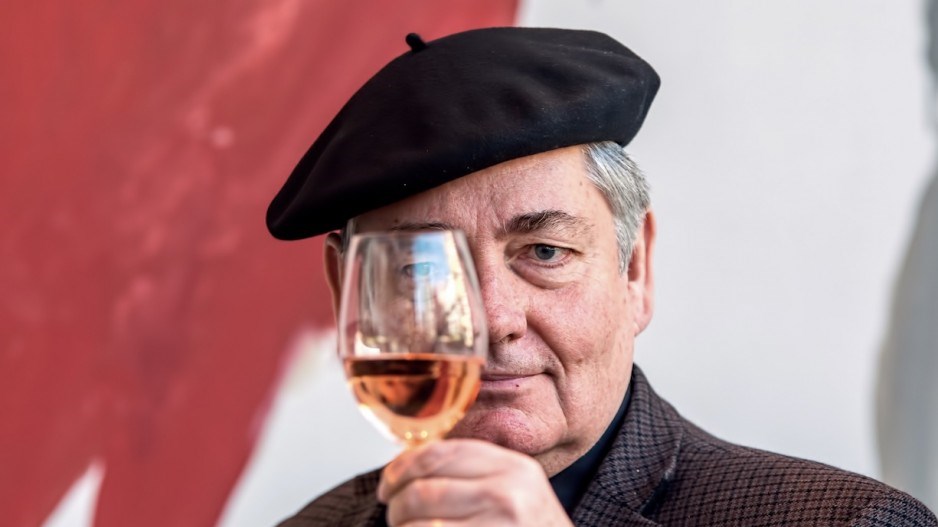Ticket sales are brisk for the 56 events at the Â鶹´«Ã½Ó³»International Wine Festival (VIWF) this week but the festivalâs executive director Harry Hertscheg told Business in Vancouver on Feb. 24 that he is concerned that principals from some of the 162 wineries that are taking part in the extravaganza may decide not to travel because of the global coronavirus health crisis.
âAnyone who has a fever might feel this is not a good time to get on a plane,â he said. âIt would have nothing to do with them having the coronavirus, but people who have fevers might think that they would be put in quarantine.â
Others, he suggested, may just be fearful of any kind of travel at this time, given that there have been more than 81,245 reported cases of  coronavirus (COVID-19), and more than 2,770 deaths, .
Hertschegâs concern that people may want to avoid large gatherings and travel is grounded in part in how the disease is spreading; while 96 per cent of the cases are in mainland China, significant outbreaks have recently sprouted up in South Korea, Japan and Italy.Â
The bulk of the Italian infections are in the country's Lombardy region, which is known mostly for sparkling wines but also for red and white table wines. To control the spread of the disease, authorities have cancelled sports matches and closed schools, universities, restaurants and tourist attractions, such as the Duomo cathedral in Milan, the capital of Lombardy.Â
In nearby Veneto, where other coronavirus cases have been detected, winemakers make everything from prized Amarone della Valpolicella to sparkling Prosecco.
Hertscheg said that the Â鶹´«Ã½Ó³»Convention Centre has sent a memo stressing that they are stepping up cleaning and disinfection wiping at its facilities. It also is providing visitors with more hand sanitizer.
The 42nd annual VIWF launched on Feb. 22, with its Bacchanalia gala dinner. There are dinners, seminars, luncheons, tastings and other events featuring wineries from 15 countries until March 1. More than 40 wineries are in the festival's theme region of France, where 14 cases of COVID-19 have been detected so far.
âWhen you hold a global event where people have to travel long distances, things happen,â Hertscheg said with a shrug. He then recounted how a large volcanic eruption in Iceland in 2010 caused air travel to be disrupted, forcing some intended festival attendees to be no-shows.
âOur rate of sales is higher than last year, and Iâm not getting any concern from the ticket purchasers,â Hertscheg said. âThe rate of sales is as brisk as ever.â
BIV reached National Event Management, which is presenting the Â鶹´«Ã½Ó³»Outdoor Adventure & Travel Show at the Â鶹´«Ã½Ó³»Convention Centre East building Feb. 29 through March 1, and asked if coronavirus fears was affecting the show.
Organizers provided a simple, âno comment.â
Major sports teams have yet to see evidence that people fear going to arenas. The Â鶹´«Ã½Ó³»Canucksâ most recent home game attracted a sell-out crowd of 18,871 fans, and the team has not seen an impact on sales for tickets at future games, it said in a statement to BIV.
To underscore expectations that the global travel industry is set for a slowdown, share prices for airlines and cruise lines have plummeted in recent days as investors reflect on the diseaseâs potential impact.
Health officials have even started changing their tune on the kinds of precautions the general public should be taking.
Instead of simply urging people to more frequently wash their hands and diligently sneeze into their sleeves instead of their hands, Canadaâs chief medical officer, Theresa Tam on Feb. 24 warned that Canada may not be able to contain and limit the spread of the disease, and that individuals should prepare for a COVID-19 outbreak.
Others officials, such as the City of Ottawaâs top health officer, Vera Etches, told media that people should stock up on non-perishable food â something liable to incite potential panic-buying and hoarding of products.



